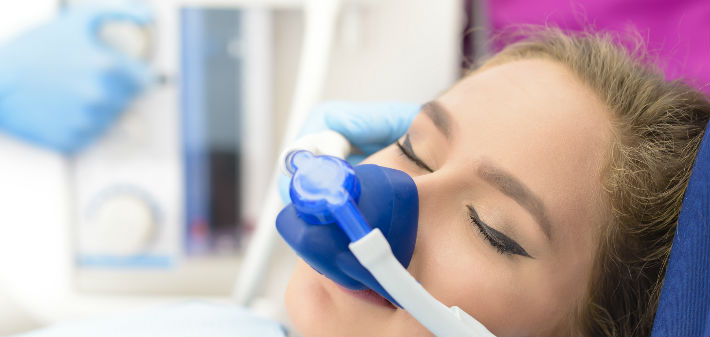Dental sedation has many uses, including helping with pain control, relieving anxiety, and reducing patient movement during procedures. Arkansas Family Dental offers sedation when appropriate to ensure your comfort and provide a positive dental experience.
You may have questions or concerns about dental sedation for yourself or your child. This is understandable. Your family’s safety is of the utmost importance, and your Little Rock family dentist has prepared this document to make certain you’re informed about dental sedation.
Sedation is Not the Same as Local Anesthetic
First, let’s address a point that is often confused. Local anesthetic is not the same as sedation. For many procedures, you may be administered a local anesthetic via an injection in your mouth after receiving a topical numbing agent. This anesthetic serves only to numb pain, dulling the sensory nerves in the immediate area. A local anesthetic will not cause you to lose consciousness, fall asleep, or become groggy.
These types of anesthetics are administered for a number of procedures – from cavity fillings to deep cleanings. A local anesthetic can also be used in conjunction with sedation such as nitrous oxide or intravenous sedation.
Nitrous Oxide
Nitrous oxide is popularly known as laughing gas for good reason. This inhaled gas has a mild anesthetic effect, but it primarily serves as an anxiolytic or anxiety-reducing agent. Nitrous oxide is mainly provided to children for extra comfort during dental procedure, but it may also be administered to adults.
When given by professionals, nitrous oxide is safe. The effects can be easily reversed by inhaling oxygen, and it will not leave you sleepy or confused.
Your child may benefit from nitrous oxide for relaxation during common dental services for kids in Little Rock including cavity fillings and tooth extractions.
Intravenous Sedation
Intravenous (IV) sedation is provided through an IV line, usually inserted via a needle in the back of your hand. Although IV sedation does not put you completely “under” like general anesthesia used during hospital surgeries, you won’t be able to tell much difference. You’ll fall asleep moments after anesthesia administration begins, and you will have no memory of the procedure.
IV sedation is typically reserved for oral surgical procedures like wisdom teeth removal in Little Rock or extreme cases of dental anxiety. Upon awakening, you will be groggy and will need some time to recover. You will not be able to drive yourself home safely and will need a friend or family member to transport you.
As long as precautions are observed, IV dental sedation is safe for both kids and adults. We always follow American Dental Association (ADA) sedation guidelines at Arkansas Family Dental, including continuous monitoring of vital signs. However, it is important that you keep your dental treatment team informed and up-to-date on your complete medical history along with any medication allergies.
To learn more about your sedation dentistry options in the Little Rock area, click here for an appointment.
